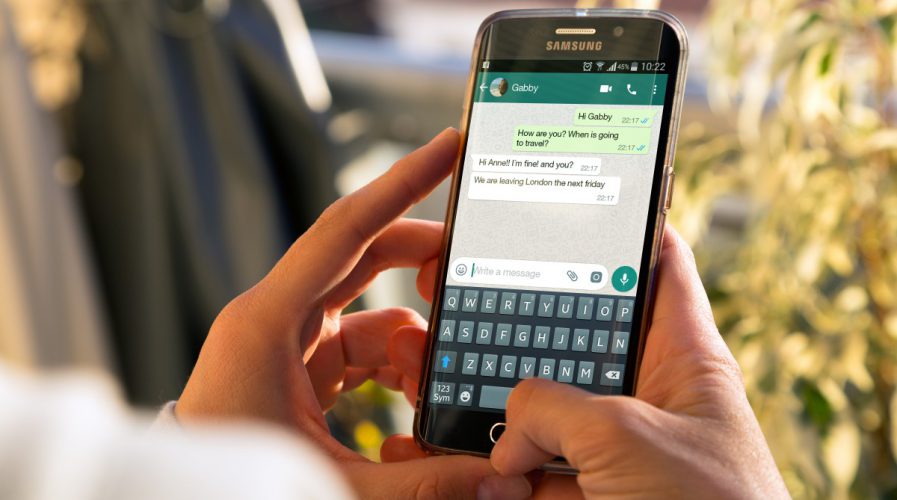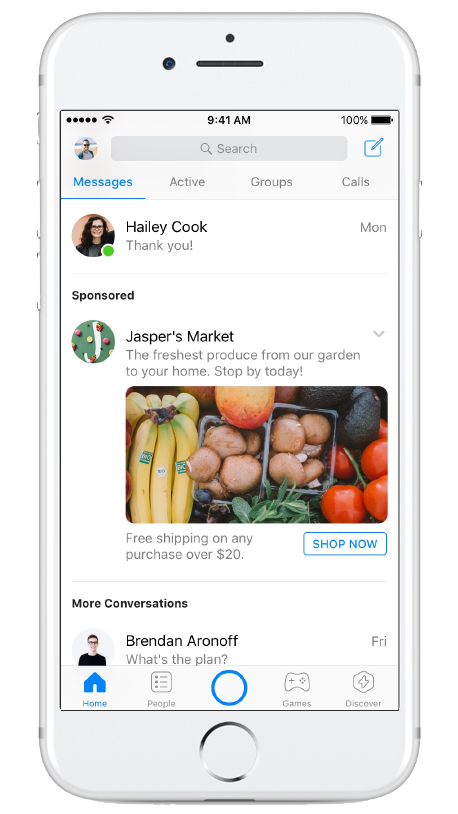
WhatsApp announce the release of the “unsend” button Source: Shutterstock
WhatsApp finally reveals plans to monetize service
FACEBOOK’s WhatsApp has announced plans to leverage on businesses in order to monetize its service, finally introducing a solution to the messaging platform’s long term sustainability issues.
WhatsApp, which was acquired by Facebook in 2014 for a staggering US$22 billion, will launch a service for large businesses, complete with green tick verification badges and a host of other communication tools. A free app for small to medium businesses is also in the works, according to the company’s blog.

“Over a billion people use WhatsApp every day to stay connected with their family and friends, and over time, more people are using the app to communicate with businesses they care about too,” reads the blog post.
“In fact, many connections are already taking place every day, whether it’s someone placing an order with a local bakery or looking at new styles from a clothing store.”
WhatsApp has (correctly) identified the fact that businesses all over the world – especially in Asia, where the platform is a staple – use the service as a free way of connecting merchants and consumers. According to the website, surveys of users has revealed that when businesses use WhatsApp, customers feel more comfortable buying from that retailer as it establishes a connection between invisible sides of a digital transaction.
SEE ALSO: WhatsApp popularity soars in India providing a free marketing tool to companies
“We’ve heard stories of shopkeepers who use WhatsApp to stay in touch with hundreds of customers from a single smartphone, and from people who are unsure about whether or not a business on WhatsApp is authentic,” the company’s blog said.
Monetizing products has always been a huge problem for technology products, as companies have to first educate users past the notion digital services are ephemeral enough to not warrant a cost. However, technology companies have employees and bills to pay, making it extremely difficult that one of the biggest problems in the industry is also its most integral.

Facebook introduced enterprise tools for businesses via its Messenger app, possibly a model for WhatsApp’s future tools. Source: Facebook
“We do intend on charging businesses in the future,” WhatsApp COO Matt Idema told the Wall Street Journal in an interview, adding that the company does not have details of the what services its monetization plan would entail as of yet.
WhatsApp has been saying for years now that they would look to non-advertising methods of monetizing their business, as they thought that having ads would disrupt their users’ experience.
“Naturally, people might wonder how we plan to keep WhatsApp running without subscription fees and if today’s announcement means we’re introducing third-party ads. The answer is no,” the company said in a blog post regarding its business model.
“Starting this year (2017), we will test tools that allow you to use WhatsApp to communicate with businesses and organizations that you want to hear from. That could mean communicating with your bank about whether a recent transaction was fraudulent, or with an airline about a delayed flight.”
At first the company seemed like they would be implementing a US$0.99 subscription fee – remember those notifications popping up every so often? – which they later scrapped. At this point, charging for enterprise tools seems to be the company’s last resort.
SEE ALSO: WhatsApp to launch P2P payment platform in India
WhatsApp had previously been reported to be working on various other services for businesses, such as a peer-to-peer (P2P) payment platform for its Indian audience, which is its biggest market by far.
WhatsApp’s continuing decision to shy away from ads stands in stark contrast to its parent company, Facebook, whose entire business is funded by huge advertising revenues. Facebook began introducing sponsored posts in its Messenger app in July of this year as it seeks new ways to engage users of its messaging service with advertising clients. However, it’s plain to see that Facebook is now pushing for WhatsApp to make its acquisition worthwhile.
READ MORE
- Strategies for Democratizing GenAI
- The criticality of endpoint management in cybersecurity and operations
- Ethical AI: The renewed importance of safeguarding data and customer privacy in Generative AI applications
- How Japan balances AI-driven opportunities with cybersecurity needs
- Deploying SASE: Benchmarking your approach
